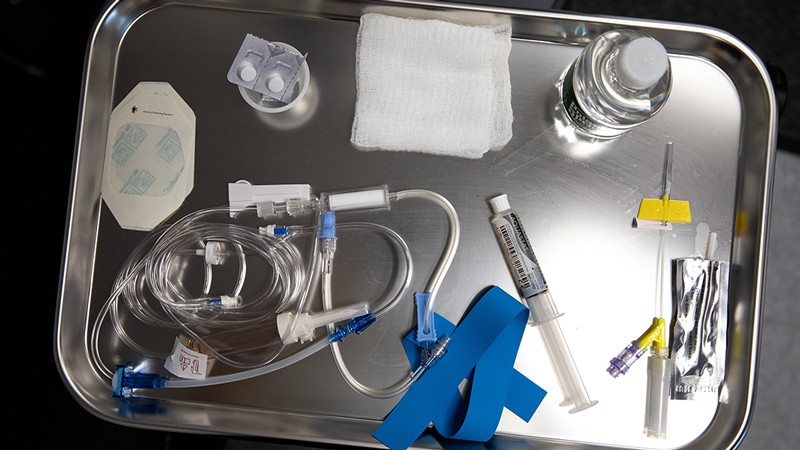A first-of-its-kind analysis has a clear message about when to give the COVID-19 therapies called monoclonal antibodies: the earlier people get this type of treatment, the better they fare1.
The study, based on dozens of clinical trials, also suggests that many antibody therapies might work at doses much lower than those usually administered. This finding could have far-reaching implications given monoclonal antibodies’ extraordinarily high cost and their ability to keep people with COVID-19 out of hospital. The study was posted on the medRxiv preprint server on 22 March and has not yet been peer reviewed.
“We’ve been giving huge doses of antibodies,” says Miles Davenport, an immunologist at the University of New South Wales in Sydney, Australia, who co-led the study. “You could get away with using much, much lower doses.”
Monoclonal antibodies are synthetic versions of the natural immune molecules that can attach to pathogens and prevent them from infecting cells. They are among the few successful treatments for COVID-19, although the highly mutated Omicron variant has robbed many of them of their ability to protect against severe disease.
To explore how timing and dose affect antibodies’ effectiveness, Davenport, David Khoury, who is an infectious-disease researcher at the University of New South Wales, and their colleagues analysed data from 37 randomized controlled trials of both monoclonal antibodies and antibodies from the blood of people who have recovered from COVID-19. The team found that the earlier monoclonal antibodies were administered after SARS-CoV-2 infection, the more effective they proved.
The authors estimated that early treatment could reduce the risk of hospitalization by around 70%. They also determined that doses of antibody drugs 7 to 1,000 times lower than typically administered could still achieve nearly the same efficacy.
Omicron, victorious
Table of Contents
The emergence of the mutation-laden Omicron variant has rendered many antibodies ineffective. Of the six drugs the researchers analysed, just two were predicted to retain any effectiveness against the fast-rising BA.2 subvariant of Omicron. One, imdevimab, is predicted to be 60% effective against hospitalization caused by BA.2, if given at very high doses. But the authors project that the sotrovimab, which is 63% effective at preventing hospitalization in people infected with the BA.1 version of Omicron, is less than 20% effective at preventing BA.2-related hospitalization.
“This type of prediction is very useful in designing clinical trials (timing and dosing) that are most likely to provide benefit to patients,” wrote Akiko Iwasaki, an immunologist at Yale University in New Haven, Connecticut, on Twitter. But she also noted that clinical trials would be needed to confirm whether drugs such as imdevimab are still effective against BA.2.
Despite Omicron, Davenport says his team’s study could guide the future use of antibody drugs — such as those under development that might be less susceptible to losing effectiveness against new variants.
John Moore, a vaccine researcher at Weill Cornell Medicine in New York City, says the finding that antibody drugs might be effective at much lower doses could allow the therapies to reach many more people. But he worries that the conservative tendencies of doctors and regulators might limit the study’s real-world impact. “I can’t imagine a physician is going to read that preprint and say, let’s cut the dose by three and do three patients instead of one.”

